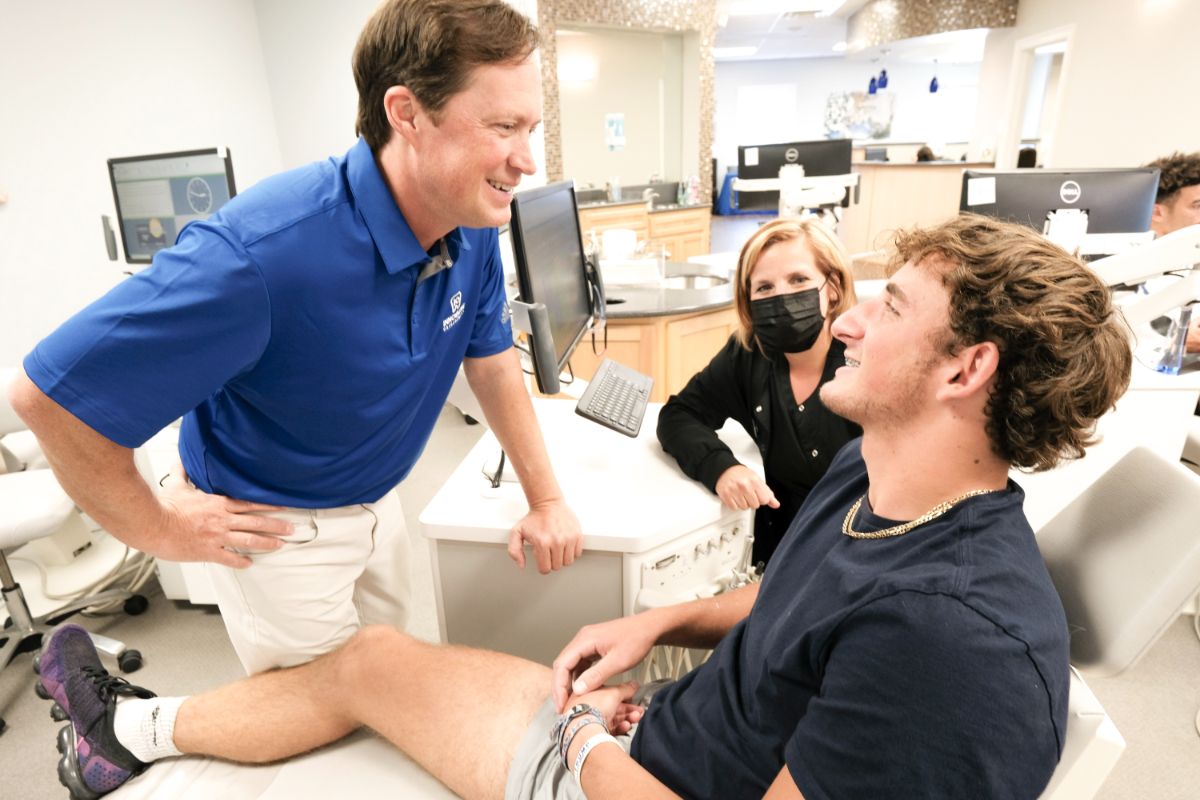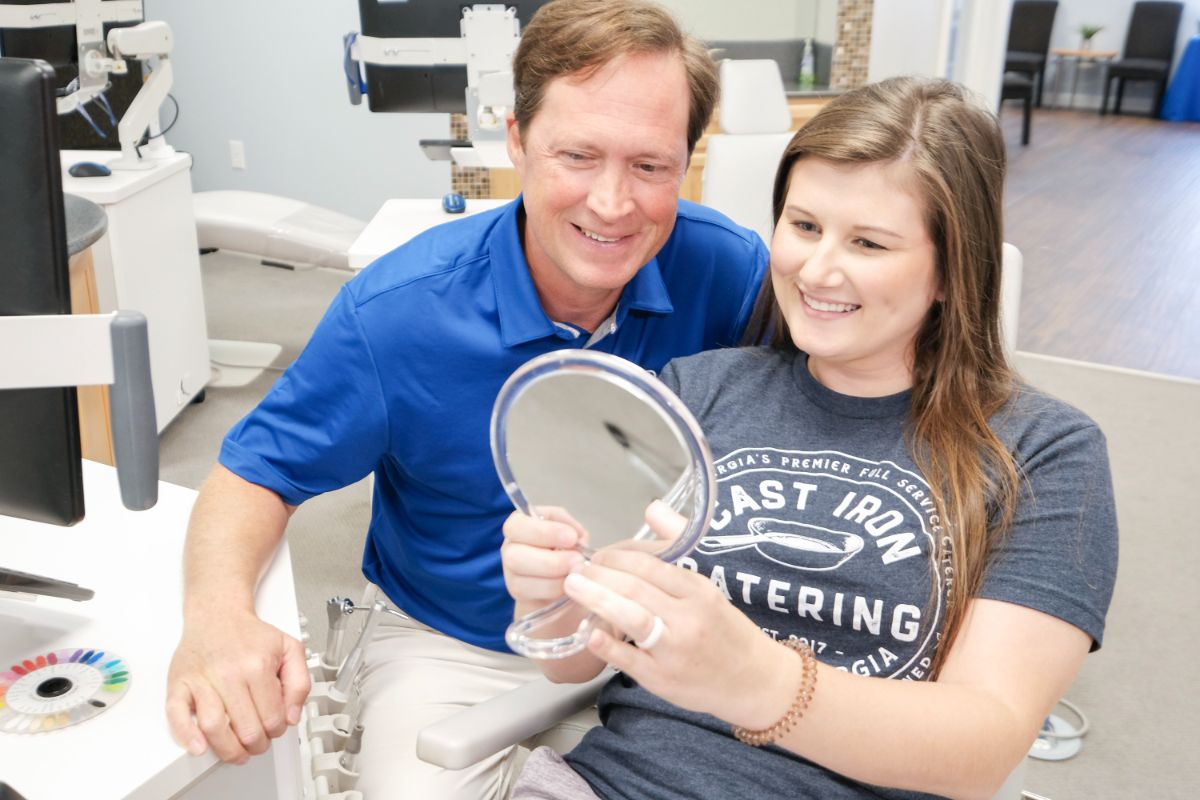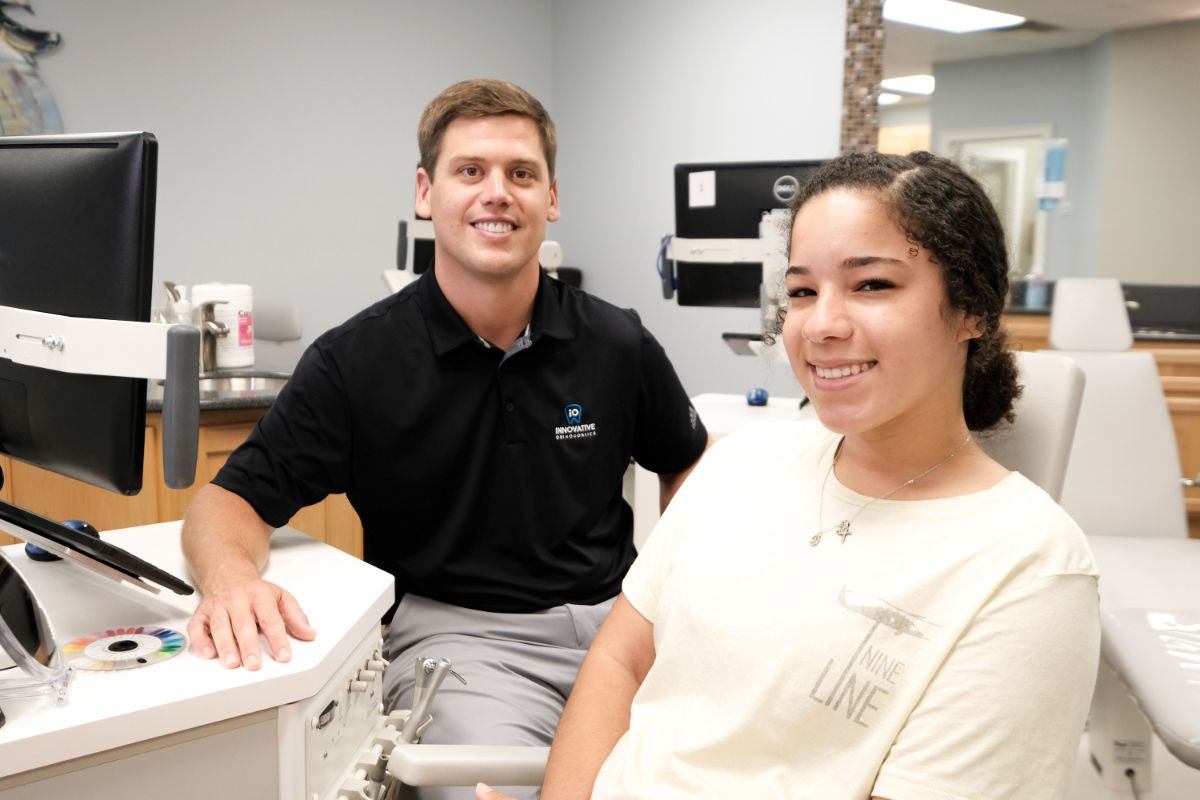Every parent loves to see their child smile, and all the little imperfections only add to its unique charm. However, untreated issues like crowded teeth and misalignments can interfere with a child’s ability to eat, sleep, speak, and function well at home and school. Orthodontic treatment can be the solution for many of the dental problems children experience, but what causes them to occur in the first place? Innovative Orthodontics has your guide to recognizing bad habits that will affect your child’s teeth.
While there are many factors that must be considered when it comes to a child’s oral health, one of the most common causes of misaligned teeth is bad habits like thumb sucking, extended bottle use, and many others. Destructive habits like these are commonly seen among babies, toddlers, and young children, but adults can struggle with some of them as well.
Because these bad habits can lead to cosmetic and structural damage to the teeth and jaws, it’s important to address them early on! This can be as simple as patient education and minor behavior modification, but dental and orthodontic work may sometimes be necessary.
Here at Innovative Orthodontics, we want to see your child achieve a healthy, confident smile. Let’s take a closer look at some of the bad habits that can negatively affect your child’s teeth, and how you can tackle them with our help! Keep reading below to learn more.
Early orthodontic evaluations
Developing good oral habits in your children is critical, and stopping bad habits is just as important. This is one reason the American Association of Orthodontists recommends all children see an orthodontist by the time they’re 7 years old! Some parents are surprised by this suggestion since most kids that age still have developing mouths and a large number of baby teeth left, but the back bite is already established. That means orthodontists like Dr. Waters and Dr. Clayton can evaluate the side-to-side and front-to-back tooth relationships and assess the child’s bite.
It’s important to know that an orthodontic evaluation doesn’t always lead to orthodontic treatment! In fact, we typically only recommend immediate orthodontic treatment for a small fraction of the younger patients we see. Don’t underestimate the importance of early evaluations, though. They allow us to monitor a child’s oral development as they grow and catch any issues that may cause problems now or in the future. When we’re given the opportunity to begin treatment at the most opportune time, we can help a child’s smile grow correctly. This gives them the best chance for a lifetime of healthy smiles!
Thumb and finger sucking
Thumb and finger sucking is probably the most common oral habit we see in young children. Most kids tend to outgrow this by the time they’re school age, but if it persists for a long period of time, it can cause problems like:
- open bite of the front teeth
- flared upper incisors
- tipping of the lower incisors
- misalignment of the future permanent teeth
- deformities of the roof of the mouth
Each of these problems can vary in intensity, depending on the severity of the habit and the position of the thumb or finger in the mouth. If left untreated, your child’s teeth may suffer cosmetically and below the surface of their smile as well.
Although not as common as thumb or finger sucking, lip sucking can also be an issue for some children. This most often results in chapped or inflamed lips, but a more serious habit can cause the upper front teeth to flare out or the lower front teeth to tilt towards the tongue. Over a long enough period of time, these teeth may lose the ability to touch when the mouth is closed.

Chewing on objects
Children and adults both can develop the bad habit of chewing on objects like ice, pens, pencils, or their fingernails. Many of these are picked up subconsciously due to boredom or distraction, but they can chip away at the enamel, crack the teeth, and irritate the soft tissue inside a tooth.
In addition to the risk of cracking and chipping, nail-biting gives the bacteria that thrive under your fingernails an easy access point into your mouth. The COVID-19 pandemic provides us with an additional daily reminder to keep our hands away from our face and mouth to help prevent infection.
If your child is prone to chewing on things or biting their nails, try using sugarless gum to break the habit. Younger children may respond well to a healthy snack with a satisfying crunch, like carrots, celery, or apple slices. These foods are also great for teeth and oral health!
Teeth grinding
Anyone who’s ever experienced a child grinding their teeth at night will tell you how irritating all that crunching and squeaking gets after a while. But teeth grinding, or bruxism, is actually a pretty common habit, especially in children and pre-teens. Research has shown that most children eventually outgrow grinding their teeth, however, it can still cause some problems for them while it continues.
For example, the grinding action can wear down the enamel of a child’s teeth and disrupt their sleep. Some clinical studies have even demonstrated a possible link between bruxism and anxiety, stress, and depression in those who suffer from it.
Children who have experienced prolonged teeth grinding may also suffer headaches, earaches, and jaw pain. There are a number of possible causes for this bad habit, but teeth grinding is very common in children dealing with bite and alignment issues in their upper or lower jaw. Correcting these malocclusions with orthodontic treatment can help!

Break bad habits and gain a healthier smile with Innovative Orthodontists
Although experienced orthodontists like Dr. Waters and Dr. Clayton is able to correct misaligned teeth and other issues, recognizing bad oral habits that will affect your child’s teeth is an important part of any diagnosis. Our customized treatment plans will take into account any destructive oral habit and include ways to correct or eliminate it. If you’re in Savannah, Rincon, or Pooler and have a child who might need a little help breaking a bad oral habit, get in touch with us today and schedule a FREE consultation!

